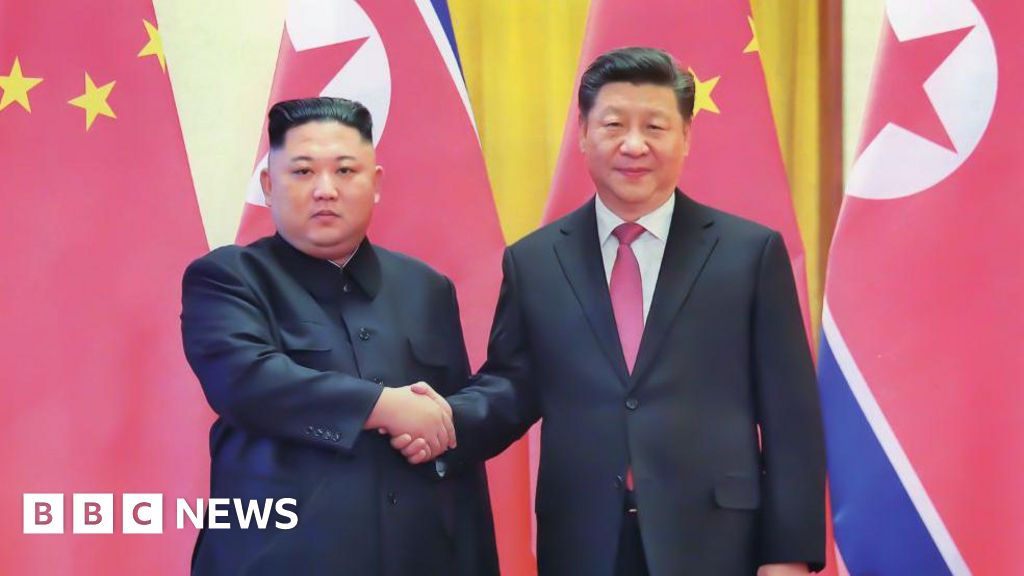North Korea's leader Kim Jong Un will attend a military parade in Beijing next week, China's foreign ministry has said - in what is believed to be his first international level meeting of leaders.
The so-called Victory Day parade will mark the 80th anniversary of China's war against Japan and the end of World War Two.
Russia's President Vladimir Putin will also be among the 26 heads of state expected to attend the event and comes days after US leader Donald Trump said he wanted to meet Kim.
China is expected to display its latest weaponry including hundreds of aircraft, tanks and anti-drone systems - the first time its military's new force structure is being fully showcased in a parade.
The highly choreographed parade will see tens of thousands of military personnel march in formation through Tiananmen Square, including troops from 45 of the so-called echelons of China's military as well as war veterans.
The 70-minute parade, which will be surveyed by Chinese leader Xi Jinping, is expected to be closely watched by analysts and western powers.
In a press conference given by China's foreign ministry, Beijing - one of Pyongyang's closest allies – praised its neighbour for their decades-long traditional friendship and said the two countries will continue to collaborate on regional peace and stability.
Kim's attendance is an upgrade from China's last Victory Day parade, which took place in 2015 - during which Pyongyang sent one of its top officials, Choe Ryong-hae.
Kim attending the parade in the centre of Beijing standing alongside Russia's Putin and China's Xi will be quite the photo opportunity, presenting a key diplomatic win for Xi.
The timing of this event comes as the US president is looking to negotiate peace with Putin over the war in Ukraine, indicating a shift in international relations.
It has been six years since Kim visited Beijing, which marks a notable year for international diplomacy.
Most Western leaders are not expected to attend the parade, with heightened tensions surrounding the Ukraine conflict and Japan's own reservations regarding anti-Japanese sentiments associated with the event.
The attendance of South Korea's President Lee Jae Myung is in question, presenting a potential opportunity for dialogue with Kim but also a significant diplomatic risk.



















